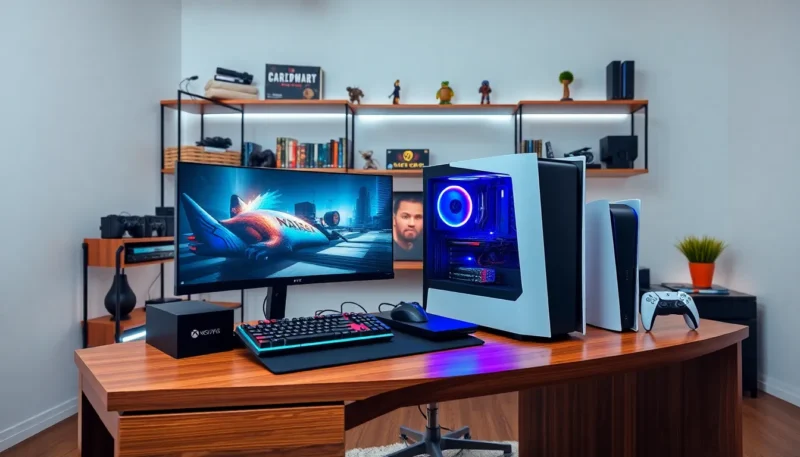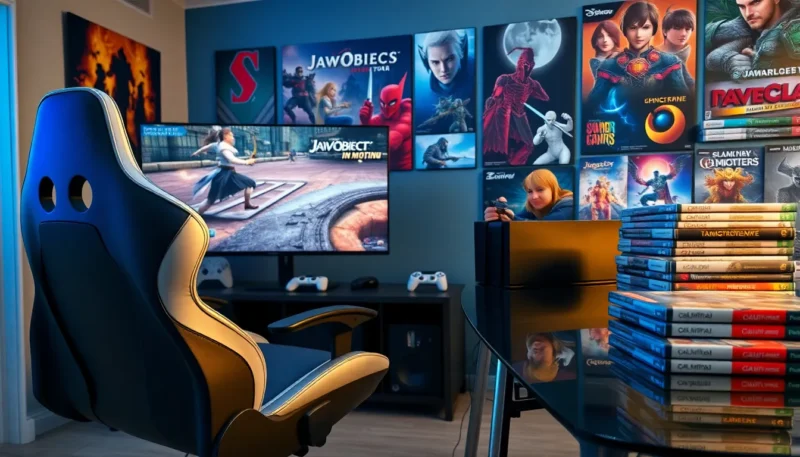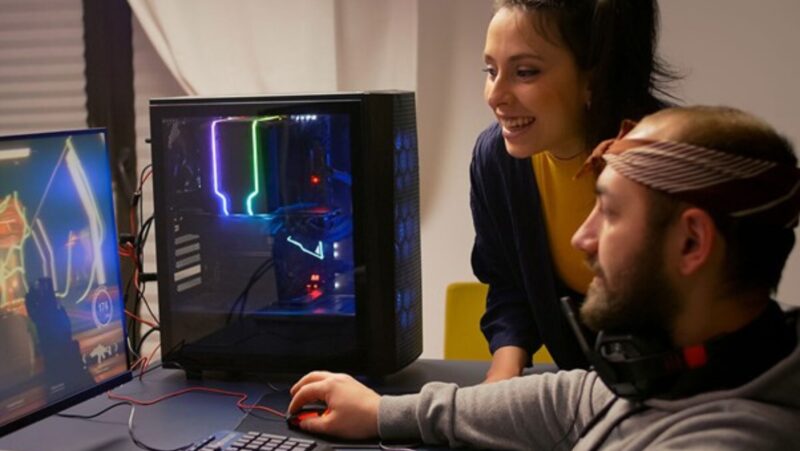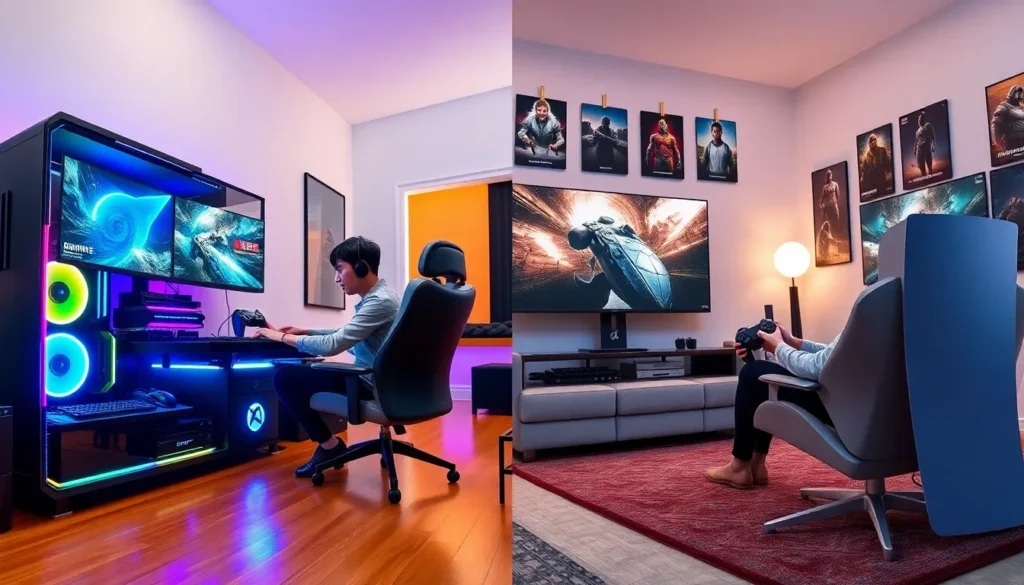
In the fierce arena of gaming, two titans stand tall: PC gaming and console gaming. Picture this: a console player strutting into a multiplayer arena with a gamepad, and a PC gamer preparing for battle armed with a keyboard and mouse. Which is better? Let’s jump into this epic face-off, sprinkling a dash of humor along the way. Whether you’re loading up your favorite RPG or gearing up for a competitive FPS, understanding these two platforms will help you pick your side, and maybe throw in some witty banter next time you join the gaming chat.
PC Gaming and Console Gaming
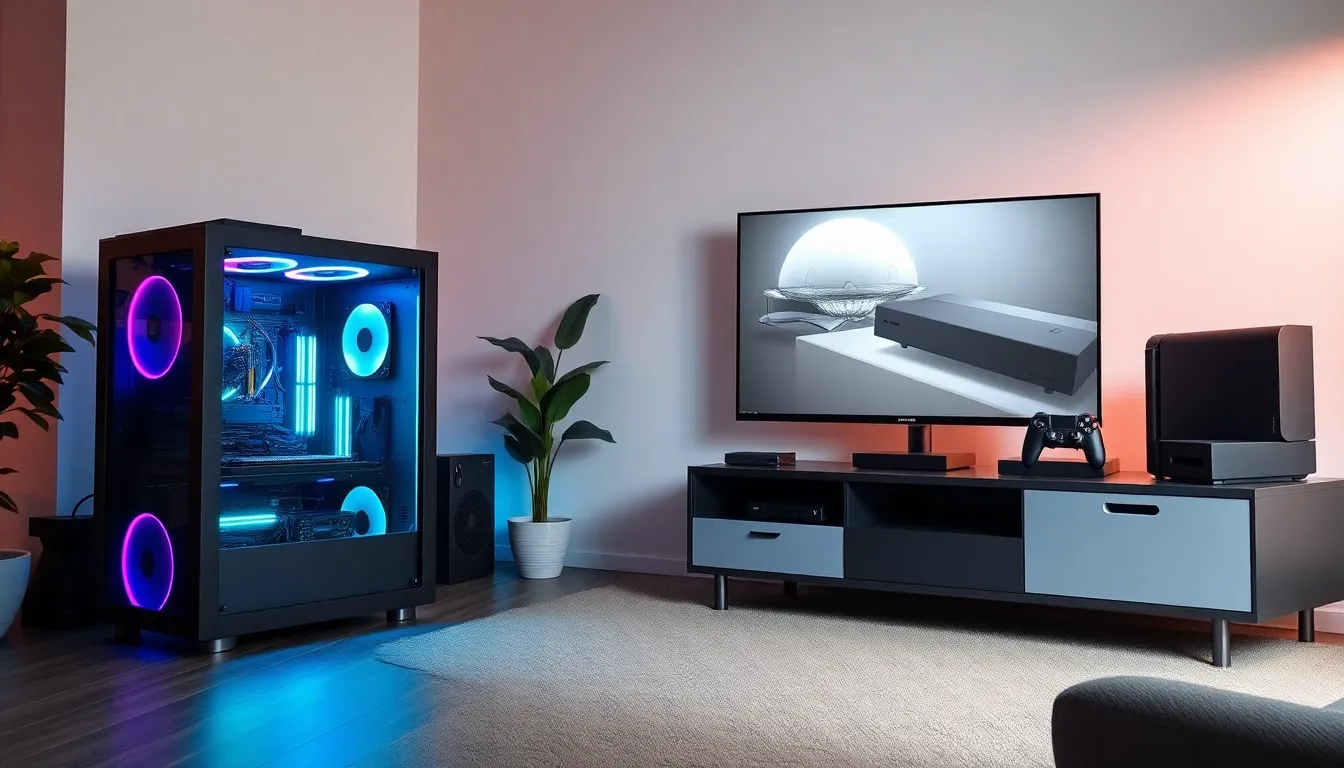
PC gaming offers a highly customizable experience, allowing gamers to fine-tune every component, from graphics cards to cooling systems. In contrast, console gaming presents a streamlined approach: you buy it, plug it in, and start playing. While both provide incredible gaming experiences, their core philosophies diverge significantly.
Gamers have long debated which is superior. On one hand, PCs embrace versatility and you can upgrade components as needed. On the other hand, consoles deliver user-friendly gaming straight out of the box. Each platform boasts loyal followers, and both have unique features that cater to diverse gaming styles.
Key Differences Between PC Gaming and Console Gaming
When considering the faceoff between PC gaming and consoles, several key differences emerge:
Performance and Graphics
PCs have long been hailed for their superior graphics capabilities. With ultra-high-definition displays, bleeding-edge hardware, and customizable settings, PCs can push visual fidelity to stunning heights. Gamers often find themselves mesmerized by the detailed graphics and immersive experiences that powerful rigs offer.
Consoles, but, are no slouches. While generally offering limited upgradability, manufacturers design consoles to ensure optimal performance for their specific titles. Gamers can expect solid graphics at launch, but scaling up to the latest graphical standards takes time and may not always be possible.
Game Availability and Exclusives
Game availability often draws the battle lines for many gamers. PC platforms offer an extensive library through distribution services like Steam, Epic Games Store, and others, showcasing a vast array of indie and blockbuster titles alike. Besides, many developers opt for PC as their primary development platform due to its capabilities.
Consoles, meanwhile, boast some of the most sought-after exclusives. Titles like “The Last of Us,” “Halo,” and “God of War” draw console enthusiasts as they become synonymous with the gaming experience on specific platforms. Gamers often find themselves choosing consoles for these exclusive titles.
Pricing and Value for Money
When it comes to pricing, a clear divide exists. PC gaming can demand a hefty initial investment: a robust gaming rig can be a financial commitment. But, it often leads to better long-term value through the option to upgrade individual components instead of replacing the entire system.
Consoles come with a fixed price, making them accessible for those looking for a straightforward entry into gaming. Thanks to occasional sales and bundles, consoles often provide good value, especially when factoring in exclusive games.
User Experience and Ease of Use
User experience plays a huge role in the gaming decision.
Customization and Upgradability
PC gaming allows for a high degree of customization. Enthusiasts spend hours fine-tuning their builds and settings, creating a personalized gaming experience. From RGB lighting to custom cooling systems, the options are virtually limitless.
On the flip side, console gaming is rooted in simplicity. Users can set up their devices easily and enjoy immediate access to pre-defined user interfaces, focusing less on hardware and more on gameplay. This ease appeals to casual gamers and families alike.
Multiplayer and Community Features
The multiplayer experience varies, and it’s essential to consider while choosing a platform. Many gamers enjoy PC gaming for its vast online communities, modding options, and the ability to host and join diverse multiplayer games.
Consoles capitalize on connecting friends through built-in features tied to their respective ecosystems. Platforms like PlayStation and Xbox offer seamless party systems, making getting together with friends virtually straightforward. Gamers often favor the platform where their friends game,
Future Trends in Gaming Platforms
As technology evolves, the gaming landscape undergoes significant transformations. With the rise of cloud gaming, the lines between PC and console are blurring. Services like Google Stadia, Xbox Cloud Gaming, and NVIDIA GeForce Now are redefining what it means to game, allowing players to access their favorite titles without high-end hardware.
Also, as virtual reality advances, both gaming platforms are pushing the envelope on immersive experiences, creating new avenues for gameplay. The future likely holds even more exciting developments, ensuring that gamers have plenty to look forward to, regardless of their platform of choice.







